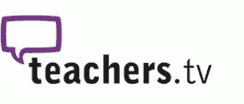Problem Solving
A selection of resources containing a wide range of open-ended tasks, practical tasks, investigations and real life problems, to support investigative work and problem solving in primary mathematics.
- ALL
- Teacher guidance
- Textbook
- Video
- Open-ended task
- Activity sheet
- External link
- Other
Teacher guidance
Problem solving with EYFS, Key Stage One and Key Stage Two children
These three resources, from the National Strategies, focus on solving problems.
Logic problems and puzzles identifies the strategies children may use and the learning approaches teachers can plan to teach problem solving. There are two lessons for each age group.
Finding all possibilities focuses on one particular strategy, finding all possibilities. Other resources that would enhance the problem solving process are listed, these include practical apparatus, the use of ICT and in particular Interactive Teaching Programs.
Finding rules and describing patterns focuses on problems that fall into the category 'patterns and relationships'. There are seven activities across the year groups. Each activity includes objectives, learning outcomes, resources, vocabulary and prior knowledge required. Each lesson is structured with a main teaching activity, drawing together and a plenary, including probing questions.
Textbook
Cards for Cubes: Problem Solving Activities for Young Children
This book provides a series of problem solving activities involving cubes. The tasks start simply and progress to more complicated activities so could be used for different ages within Key Stages One and Two depending on ability. The first task is a challenge to create a camel with 50 cubes that doesn't fall over. Different characters are introduced throughout the book and challenges set to create various animals, monsters and structures using different numbers of cubes. Problems are set to incorporate different areas of mathematical problem solving they are: using maths, number, algebra and measure.
Video
Problem Solving in Primary Maths - the Session
In this programme shows a group of four upper Key Stage Two children working on a challenging problem; looking at the interior and exterior angles of polygons and how they relate to the number of sides. The problem requires the children to listen to each other and to work together co-operatively. The two boys and two girls are closely observed as they consider how to tackle the problem, make mistakes, get stuck and arrive at the "eureka" moment. They organise the data they collect and are then able to spot patterns and relate them to the original problem to find a formula to work out the exterior angle of any polygon. At the end of the session the children report back to Mark, explaining how they arrived at the solution, an important part of the problem solving process.
In a second video two maths experts discuss some of the challenges of teaching problem solving. This includes how and at what stage to introduce problem solving strategies and the appropriate moment to intervene when children find tasks difficult. They also discuss how problem solving in the curriculum also helps to develop life skills.
Open-ended task
GAIM Activities: Practical Problems
Designed for secondary learners, but could also be used to enrich the learning of upper primary children, looking for a challenge. These are open-ended tasks encourage children to apply and develop mathematical knowledge, skills and understanding and to integrate these in order to make decisions and draw conclusions.
Examples include:
*Every Second Counts - Using transport timetables, maps and knowledge of speeds to plan a route leading as far away from school as possible in one hour.
*Beach Guest House - Booking guests into appropriate rooms in a hotel.
*Cemetery Maths - Collecting relevant data from a visit to a local graveyard or a cemetery for testing a hypothesis.
*Design a Table - Involving diagrams, measurements, scale.
Activity sheet
Go Further with Investigations
A collection of 40 investigations designed for use with the whole class or smaller groups. It is aimed at upper KS2 but some activities may be adapted for use with more able children in lower KS2. It covers different curriculum areas of mathematics.
Starting Investigations
The forty student investigations in this book are non-sequential and focus mainly on the mathematical topics of addition, subtraction, number, shape and colour patterns, and money.
The apparatus required for each investigation is given on the student sheets and generally include items such as dice, counters, number cards and rods. The sheets are written using as few words as possible in order to enable students to begin working with the minimum of reading.
External link
NRICH Primary Activities
Explore the NRICH primary tasks which aim to enrich the mathematical experiences of all learners. Lots of whole class open ended investigations and problem solving tasks. These tasks really get children thinking!
Other
Primary mathematics classroom resources
This selection of 5 resources is a mixture of problem-solving tasks, open-ended tasks, games and puzzles designed to develop students' understanding and application of mathematics.
Thinking for Ourselves: These activities, from the Association of Teachers of Mathematics (ATM) publication 'Thinking for Ourselves’, provide a variety of contexts in which students are encouraged to think for themselves. Activity 1: In the bag – More or less requires students to record how many more or less cubes in total...
8 Days a Week: The resource consists of eight questions, one for each day of the week and one extra. The questions explore odd numbers, sequences, prime numbers, fractions, multiplication and division.
Number Picnic: The problems make ideal starter activities
Matchstick Problems: Contains two activities concentrating upon the process of counting and spotting patterns. Uses ideas about the properties of number and the use of knowledge and reasoning to work out the rules.
Colours:Use logic, thinking skills and organisational skills to decide which information is useful and which is irrelevant in order to find the solution.








